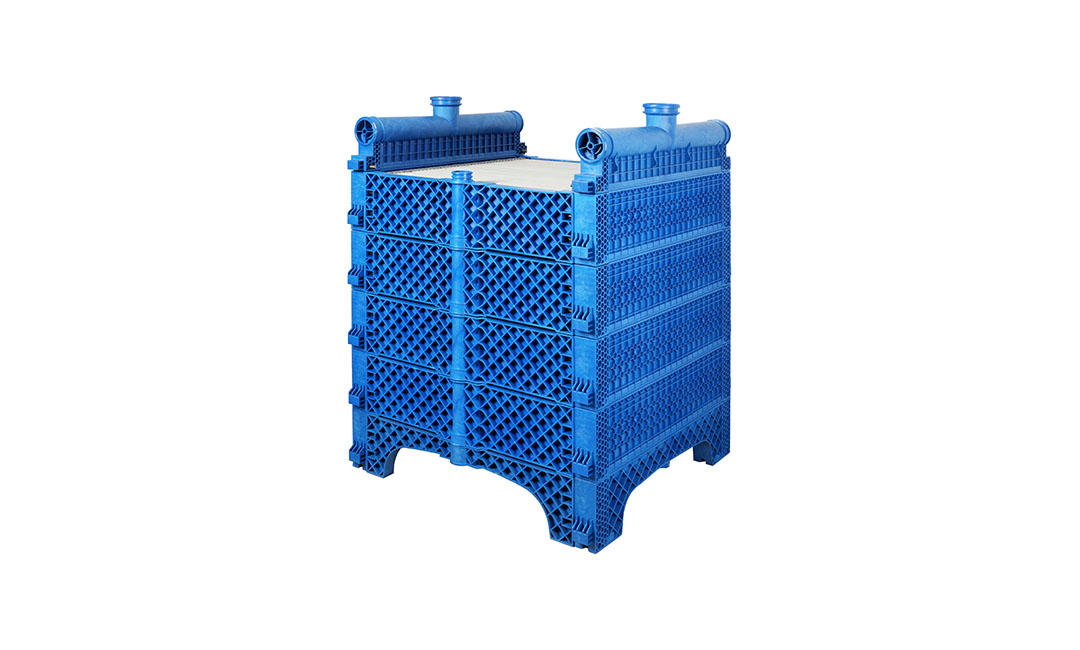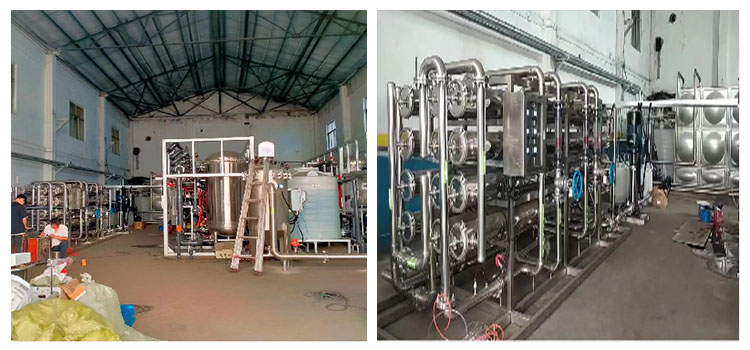Benefits of Using Advanced Tubular Membranes in Industrial Filtration Processes
Advanced tubular membranes have revolutionized the field of industrial filtration processes, offering improved efficiency and performance compared to traditional filtration methods. These membranes are designed to provide a higher level of filtration, allowing for the removal of even the smallest particles and contaminants from a variety of liquids and gases. By utilizing advanced tubular membranes, industries can achieve higher levels of purity and quality in their products, leading to increased productivity and cost savings in the long run.
One of the key benefits of using advanced tubular membranes is their superior filtration capabilities. These membranes are engineered to have a high surface area, allowing for greater contact between the membrane and the fluid being filtered. This increased surface area results in more efficient filtration, as more particles are captured and removed from the fluid. As a result, industries can achieve higher levels of purity in their products, leading to improved quality and consistency.
In addition to their superior filtration capabilities, advanced tubular membranes also offer increased durability and longevity. These membranes are designed to withstand harsh operating conditions, such as high temperatures and pressures, without compromising their performance. This durability ensures that the membranes can be used for extended periods of time, reducing the need for frequent replacements and maintenance. As a result, industries can save time and money on maintenance costs, while also reducing downtime and increasing overall efficiency.
Another benefit of using advanced tubular membranes is their versatility. These membranes can be customized to meet the specific needs of different industries and applications, allowing for greater flexibility and adaptability in filtration processes. Whether filtering water, chemicals, or gases, advanced tubular membranes can be tailored to provide optimal performance and efficiency. This versatility makes these membranes ideal for a wide range of industries, from pharmaceuticals to food and beverage production.
Furthermore, advanced tubular membranes are environmentally friendly, as they require less energy and resources to operate compared to traditional filtration methods. By using these membranes, industries can reduce their carbon footprint and minimize their impact on the environment. This sustainability factor is becoming increasingly important in today’s world, as more companies are looking for ways to reduce their environmental impact and operate in a more eco-friendly manner.
Overall, the benefits of using advanced tubular membranes in industrial filtration processes are clear. From superior filtration capabilities to increased durability and versatility, these membranes offer a range of advantages that can help industries improve their efficiency and productivity. By investing in advanced tubular membranes, companies can achieve higher levels of purity and quality in their products, while also reducing maintenance costs and environmental impact. As technology continues to advance, the use of advanced tubular membranes is likely to become even more widespread, revolutionizing the field of industrial filtration for years to come.
Case Studies Highlighting the Efficiency Gains Achieved with Advanced Tubular Membranes
Advanced tubular membranes have revolutionized the field of filtration by offering improved efficiency and performance compared to traditional flat sheet membranes. These innovative membranes are designed to provide higher flux rates, better fouling resistance, and increased durability, making them ideal for a wide range of applications in industries such as water treatment, food and beverage, pharmaceuticals, and more.
One of the key advantages of advanced tubular membranes is their higher surface area-to-volume ratio, which allows for greater filtration capacity in a smaller footprint. This means that more water or other liquids can be processed in a shorter amount of time, leading to increased productivity and cost savings for businesses. Additionally, the tubular design of these membranes allows for better flow distribution and reduced fouling, resulting in longer membrane life and lower maintenance costs.

Case studies have shown significant efficiency gains achieved with the use of advanced tubular membranes in various applications. For example, in a water treatment plant in a major city, the installation of tubular membranes resulted in a 30% increase in filtration capacity and a 20% reduction in energy consumption compared to the previous flat sheet membranes. This improvement not only allowed the plant to meet growing demand for clean water but also saved thousands of dollars in operating costs each year.

In the food and beverage industry, a manufacturer of dairy products saw a 40% increase in production efficiency after switching to advanced tubular membranes for their filtration process. The higher flux rates and improved fouling resistance of the tubular membranes allowed the company to process more milk in less time, leading to higher output and increased profitability. Additionally, the durability of the tubular membranes meant less downtime for maintenance, further enhancing the overall efficiency of the operation.
In the pharmaceutical industry, a manufacturer of vaccines and biologics experienced a 50% reduction in filtration time and a 25% decrease in product loss after implementing advanced tubular membranes in their production process. The higher flux rates and better fouling resistance of the tubular membranes allowed for faster and more efficient filtration of the sensitive products, resulting in higher yields and lower costs. The improved performance of the membranes also led to a higher quality final product, ensuring compliance with strict regulatory standards.
Overall, the case studies highlighting the efficiency gains achieved with advanced tubular membranes demonstrate the significant impact that these innovative filtration technologies can have on various industries. By providing higher flux rates, better fouling resistance, and increased durability, advanced tubular membranes offer a cost-effective solution for businesses looking to improve their filtration processes and enhance overall efficiency. Whether in water treatment, food and beverage, pharmaceuticals, or other industries, advanced tubular membranes are proving to be a game-changer in the world of filtration.
Future Trends and Innovations in Advanced Tubular Membranes for Enhanced Filtration Performance
Advanced tubular membranes are revolutionizing the field of filtration by offering improved efficiency and performance compared to traditional flat sheet membranes. These innovative membranes are designed to provide higher flux rates, better separation efficiency, and increased durability, making them ideal for a wide range of applications in industries such as water treatment, pharmaceuticals, food and beverage, and more.
One of the key advantages of advanced tubular membranes is their unique design, which allows for a higher surface area-to-volume ratio compared to flat sheet membranes. This increased surface area enables faster filtration rates and higher throughput, making these membranes ideal for applications where high flow rates are required. Additionally, the tubular design allows for better control over the flow of the feed solution, resulting in more efficient separation of particles and contaminants.
Another important feature of advanced tubular membranes is their enhanced durability and longevity. These membranes are typically made from high-quality materials such as ceramic, stainless steel, or polymer composites, which are resistant to fouling, scaling, and chemical degradation. This means that advanced tubular membranes can operate at higher pressures and temperatures, leading to longer membrane life and reduced maintenance costs.
In addition to their superior performance and durability, advanced tubular membranes also offer improved separation efficiency compared to traditional flat sheet membranes. The tubular design allows for better control over the size and shape of the pores, resulting in more precise separation of particles based on their size, shape, and charge. This level of control enables advanced tubular membranes to achieve higher rejection rates and lower energy consumption, making them a cost-effective solution for a wide range of filtration applications.
One of the most exciting trends in advanced tubular membranes is the development of new materials and coatings that further enhance their performance and efficiency. For example, researchers are exploring the use of nanomaterials such as carbon nanotubes, graphene, and metal-organic frameworks to create membranes with enhanced selectivity, permeability, and anti-fouling properties. These advanced materials are opening up new possibilities for improving the performance of tubular membranes and expanding their applications to new areas such as gas separation, desalination, and wastewater treatment.
As the demand for clean water, efficient energy production, and sustainable manufacturing continues to grow, the need for advanced filtration technologies such as tubular membranes will only increase. By investing in research and development to improve the performance and efficiency of these membranes, manufacturers and researchers can help address some of the most pressing challenges facing society today. With continued innovation and collaboration, advanced tubular membranes have the potential to revolutionize the field of filtration and pave the way for a more sustainable and efficient future.

